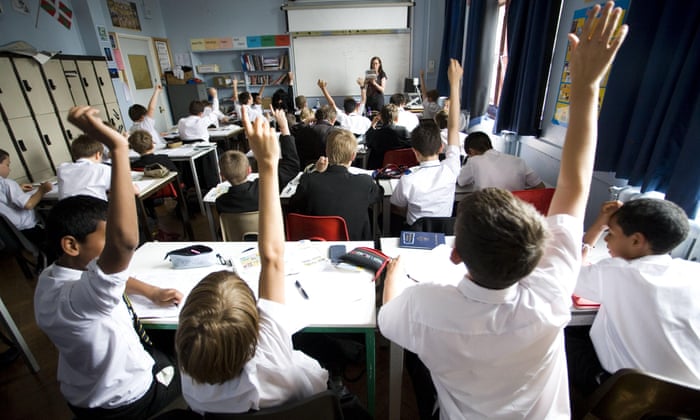
Converting struggling schools into sponsored academies may improve GCSEresults initially but appears to have no long-term effect on attainment, according to research.
The study, by the London School of Economics (LSE) in partnership with theEducation Policy Institute (EPI), found GCSE grades rose in the years before and after conversion. After that, however, GCSE performance dropped back and continued to fall over over the next three years until improvement was “back to zero” by the fourth year of being an academy.
The research, published on Wednesday, challenges the view that the government’s academies programme is a panacea for school improvement. Earlier this year the then education secretary Nicky Morgan had to abandon government ambitions to force all schools to become academies – or have plans to do so – by 2022, in the face of fierce opposition from Tory rebels.
Nevertheless the number of schools being issued with academy orders is likely to rise with increased government powers to intervene in not just inadequate schools but those described as “coasting”.
The LSE/EPI study focused on 205 secondary academies approved for academy sponsorship after the 2010 election and opened by December 2014. These were then compared to a control group of 49 sponsored academies that opened after this period.
The report first identifies a jump in results – equivalent to 1.2 GCSE grades in one subject – in the year before converting to academy status. In the year of conversion, results rise again equivalent to 1.7 grades in one subject. But after that results start to drop off.
Researchers suggest the spike in results before the school has even converted may be down to targeted focus on key stage 4 pupils about to sit their GCSEs by school leaders trying to avoid becoming an academy, or possibly trying to appeal to a successful academy chain. Another explanation might be that after years of poor performance, schools under pressure from Ofsted take action to raise standards, perhaps appointing a new headteacher or adopting new teaching policies.
“In conclusion, while we find an initial (and significant) improvement in the year prior to and after becoming a sponsored academy, we cannot attribute that trend to anything that may have been implemented by the academy sponsor,” the study says. “It may however be a result of the incentives generated by the academisation policy, which the government may well argue is a success in itself. Or, it could be that these schools were improving in any case (perhaps as a result of competition pressures or other interventions), and the fact that they became academies is not relevant. Neither can we say, yet, that the improvements are sustained over a period of longer than three years.”
The report says it is is difficult to discern how much of the drop in attainment post-conversion is due to a real decline in improvement and how much is a result of the control group improving its own results in the year before it becomes an academy. “Essentially, we find that the control group starts to behave differently as it prepares for academy conversion,” it says.
Earlier this year, analysis by the Local Government Association found 86% of local authority schools were rated good or outstanding by Ofsted, compared with 82% of academies and 79% of free schools.
[Source:- theguardian]







